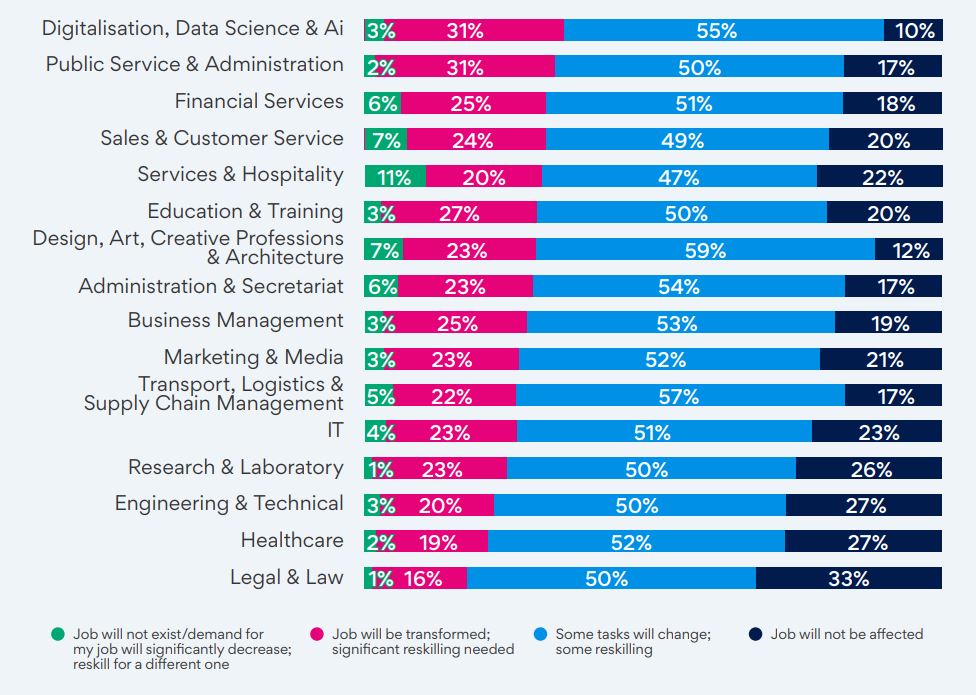1 in 3 Malaysians feel threatened by generative AI: Report

Chicken, or egg? 60% of Malaysian workers have already tried generative AI for work or personal use, 44% use it monthly, and now the majority anticipate that generative AI is going to disrupt their jobs within the next five years.
Jobstreet by SEEK’s Decoding Global Talent Report 2024, which covered responses from 6,774 employees in Malaysia, found that 79% of respondents expect AI to cause changes in their role. 28% are concerned that their roles may be significantly altered or even eliminated altogether.
Unsurprisingly, the more the profession uses generative AI, the more concerned workers are. Digitalisation, data science, and AI professionals, the heaviest users of the technology, are most inclined (34%) to believe their job will change to the extent that they need to significantly reskill. But healthcare and legal workers, among the least frequent users, are also the least concerned about having to reskill or look for new jobs (21% and 17% respectively).

Chart from "Decoding Global Talent 2024"
Source: 2023 BCG/The Network/Stepstone Group proprietary web survey and analysis.
What are people using GenAI for?
According to the report, 56% of GenAI users in Malaysia utilise it for writing tasks, significantly higher than the global average of 41% and the SEA average of 45%. The next most popular uses are administrative tasks (42%) and knowledge management (41%).
Respondents also indicated that GenAI does help them reduce the amount of time they spend on nonessential tasks (56%).
However, Malaysian users tend to run into skill challenges much more frequently than their counterparts around the region. 55% cited difficulties in writing prompts and also mentioned that they were unclear about what skills they even needed to learn in order to use the technology.
Most workers are open to reskilling, though, with 58% generally willing to learn new skills in order to stay competitive as their jobs change. Notably, some professions that indicated less concern about the technology's impact on their work were very ready to reskill, including transport and logistics (66% willing to reskill vs 27% concerned about changes).
And the top three skill sets considered desirable to reskill in by respondents were analytical skills, functional and job-specific skills, and project management skills - all areas where workers are already leveraging generative AI to some extent (e.g. research and development, administrative tasks), or where the technology can potentially support them.
















